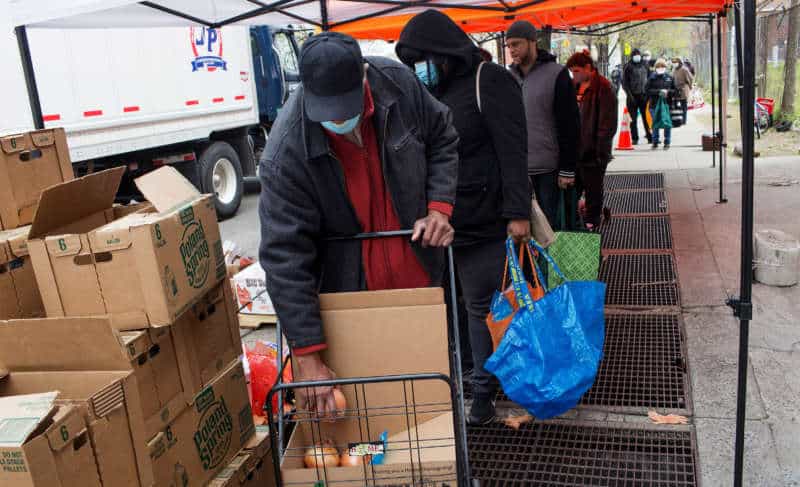
Credit: Andrew Lichtenstein/Corbis/Getty
The coronavirus — both the pandemic itself and the economic recession it caused — are hitting marginalized groups the hardest: low-wage workers, women and people of color (especially women of color) and small businesses. But instead of providing equitable relief targeted to the most disadvantaged households and businesses, Congress and the Federal Reserve are reinforcing many of the existing disparities that made our health care system and economy so fragile to begin with. Indeed, richer companies edged out smaller ones for pandemic aid, and wealthier individuals have already received their stimulus payment via direct deposit, while lower-income households still wait to receive their check in the mail.
Delivery systems for getting aid to individuals are either laggard or nonexistent in the U.S. The best we have is Social Security and the Supplemental Nutrition Assistance Program (SNAP). There are 65 million individuals each receiving monthly Social Security payments. But that system is targeted only […]












This has been a bipartisan effort over the past 30 years.
I now live in Guatemala — you know, one of those “Banana Republics” south of you. Guatemala is one of the two countries in Latin America (Bolivia is the other) with a majority indigenous population. The majority of the people are poor. There are health care options but the most popular is what the government offers everyone for free.
With the covid-19 pandemic, the government has jumped into helping “ordinary folks”. That includes new temporary hospitals specifically for coronavirus victims, various direct financial aid packages that really go to people in need and even food aid. (This is well covered in the press here but, if you can’t read Spanish search https://gt4us.com for “coronavirus” and you will find lots of explanations.)
It is nice to live where your life is not controlled by an “illness profit system”.
Cleanzonemasks.com is a place where a person can get masks at a relatively good price. They look like good masks, and I ordered 10 of them for about $32 and will share them with friends and family.